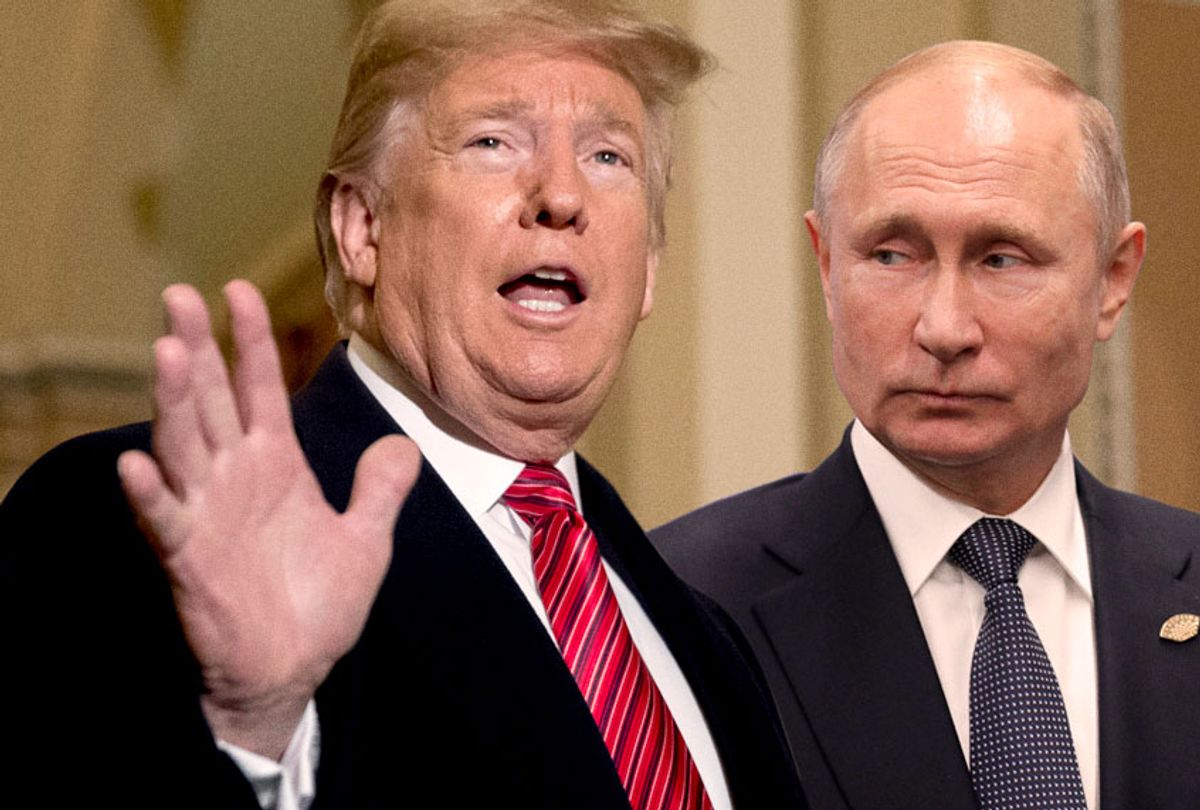The Kremlin urged the White House not to release any call transcripts between President Trump and Russian President Vladimir Putin after a whistleblower complaint, reportedly filed by a CIA officer, revealed that the administration’s attempt to hide the transcript of Trump’s call with the Ukrainian president wasn’t the “first time” it had done so.
On Wednesday, the White House released a partial transcript of a July 25 call on which Trump urged Ukrainian President Volydymyr Zelensky to investigate former Vice President Joe Biden. Asked if Russia was worried that the White House would release transcripts of Trump’s discussions with Putin, Kremlin spokesman Dmitry Peskov said that “we would like to hope it wouldn’t come to that in our relations, which are already troubled by a lot of problems,” according to the Associated Press.
Peskov added that it was “quite unusual” to release a confidential call between world leaders.
The comment came a day after a whistleblower complaint, reportedly filed by a CIA officer, was made public. The complaint revealed that the White House took steps to restrict access to the transcript of Trump’s phone call with Zelensky by moving it to a special computer intended to house sensitive national security information.
“Senior White House officials had intervened to ‘lock down’ all records of the phone call,” the complaint said. White House lawyers directed officials to “remove the electronic transcript” from the computer system where transcripts are typically stored and load it into a separate system that is “used to store and handle classified information of an especially sensitive nature.”
“One White House official described this act as an abuse of this electronic system because the call did not contain anything remotely sensitive from a national security perspective,” the whistleblower wrote.
Though not included in the complaint itself, a classified appendix to the complaint revealed that the White House had acted similarly in the past.
“According to White House officials I spoke with, this was ‘not the first time’ under this Administration that a Presidential transcript was placed into this codeword-level system solely for the purpose of protecting politically sensitive — rather than national security sensitive — information,” the whistleblower wrote.
Washington Post national security correspondent Greg Miller flagged the revelation on Twitter, writing that the complaint alleges that “White House lawyers have been stuffing politically troubling records of presidential calls into highly classified storage to hide them from scrutiny throughout Trump’s presidency. This just got much bigger.”
A former Trump administration official told Politico that the White House began restricting access to transcripts of Trump’s conversations with world leaders after details of his discussions with the leaders of Mexico and Australia were leaked early in his presidency.
But Larry Pfeiffer, the former Situation Room senior director under President Obama and CIA chief of staff under President George W. Bush, told Politico that system is only intended to store national security secrets. Under Obama, it was used to store information about the Iran nuclear deal negotiations, he said.
“It would never be used to protect or ‘lock down’ politically sensitive material or to protect the president or senior officials from embarrassment,” he explained, adding that he had never seen a presidential transcript stored there.
In 2009, Obama signed an executive order saying that information cannot be classified to “conceal violations of law, inefficiency, or administrative error” or to “prevent embarrassment to a person, organization, or agency.”
April Doss, a former National Security Agency attorney who worked on the Senate Intelligence Committee’s Russia investigation, told Politico that hiding the transcripts “risks undermining a whole host of important national security activities.”
This was the whistleblower’s concern as well, according to his complaint.
“I am also concerned that these actions,” he wrote, “pose risks to U.S. national security and undermine the U.S. Government’s efforts to deter and counter foreign interference in U.S. elections.”



Shares